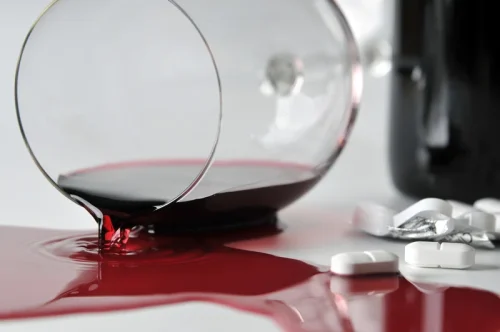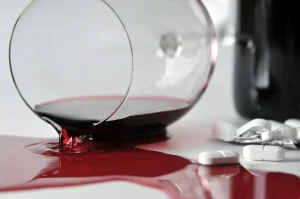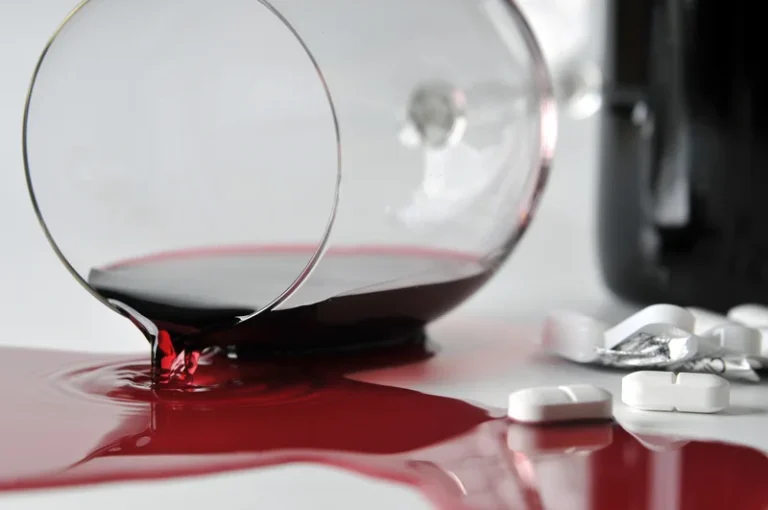
In rare cases, small clots called emboli remain in the lungs and scarring develops in the pulmonary arteries over time. This restricts blood flow and results in chronic pulmonary hypertension. Drinking more than two servings of alcohol daily increases the risk of blood clot development.
Drug Interactions: What Foods, Drugs, Herbs Affect Medications?
Because almost all pulmonary emboli originate from a DVT, and the risk factors and treatment of both are similar, doctors often use the umbrella term venous thromboembolic (VTE) disease to cover both conditions. A pulmonary embolism often happens when part of the blood clot dislodges itself from your leg and travels up to your lungs, causing a blockage. You may also have pain, redness and swelling in one of your legs (usually the calf).
Duration of Treatment
- But if you have any of these risk factors and you also abuse alcohol, your risk for developing blood clots is even higher.
- If the clot makes its way to blood vessels in the lungs and interferes with blood flow, it is called a pulmonary embolism.
- The best way to prevent pulmonary emboli is to prevent blood clots from forming.
- If we drink in moderation (one drink or fewer per day), alcohol will not likely harm us, but it’s always a good idea to consult a medical provider first.
- A saddle pulmonary embolism is a rare type of pulmonary embolism, affecting less than 3% of people with a PE.
The Reframe app equips you with the knowledge and skills you need to not only survive drinking less, but to thrive while you navigate the journey. Our daily research-backed readings teach you the neuroscience of alcohol, and our in-app Toolkit provides the resources and activities you need to navigate each challenge. Browse articles on our alcohol-related topics page and commonly asked questions about alcohol abuse page. Alcohol abusecan also cause inflammation and harm cells in both the upper and lower parts of the airway. It’s not the alcohol in its liquid form that does this, it is actually the vapor. Alcohol can have both short-term and long-term effects on the lungs.

When to see a doctor
Over time, this can start to affect the lungs, making the body more vulnerable to lung infections and damage. The primary outcomes were newly diagnosed PE or DVT from hospitalization records. All of the participants were followed-up on to evaluate the occurrence of primary outcomes until December 31, 2011 or they were censored because of death, withdrew from the NHI program, or were lost to follow up. Alcohol may not trigger amphetamine addiction treatment blood clotting processes but actually, restrict them. If you drink too much or are concerned about how much you drink, you should speak to a physician about lowering your alcohol intake or getting treatment through a rehabilitation program.

A low probability result means that there is still a 5%-15% chance that a PE exists. The scan uses inhaled gas (V) and injected dye (Q) to compare areas of the can alcohol cause blood clots in the lungs lung where air can enter with those areas of the lung that are getting blood supply. If there is a mismatch, then there is a possibility that a blood clot exists. You can expect to take blood thinners for at least 3 months and possibly much longer.
- While this seems like a good way to prevent clotting, it also puts us at risk of bleeding out if we get injured.
- Reframe supports you in reducing alcohol consumption and enhancing your well-being.
- Over time, this can start to affect the lungs, making the body more vulnerable to lung infections and damage.
- It can also affect the lower part of the airways, like the windpipe and lungs.
Recovery may include anticoagulants and lifestyle modifications to prevent additional clot development. Contact a healthcare provider to clarify any questions surrounding clot management and life after a PE. Compression stockings (support hose) improve blood flow in your legs. The stockings are usually knee-high length and compress your legs to prevent your blood from pooling. A 2013 study of almost 60,000 people found no difference in the risk of blood clots between wine or beer drinkers. Alcohol, in low to moderate amounts, thins the blood, potentially reducing the risk of clots.
Robert is our health care https://ecosoberhouse.com/ professional reviewer of this website. He has a nursing and business/technology degrees from The Johns Hopkins University. Excessive alcohol consumption can also worsen asthma and increase the risk of choking and aspiration pneumonia. ARLD describes lung problems that result from excessive alcohol consumption.
- Most commonly, DVT begins in the leg and lower abdomen (pelvis) or arm.
- Anticoagulants will need to be taken for three months or longer, depending on the underlying cause of the blood clot.
- Alcohol can have both short-term and long-term effects on the lungs.
- By Patty Weasler, RN, BSNWeasler is a Wisconsin-based registered nurse with over a decade of experience in pediatric critical care.

Ask your doctor if it’s OK for you to drink alcohol while you take blood thinners. A saddle pulmonary embolism is a rare type of pulmonary embolism, affecting less than 3% of people with a PE. A saddle pulmonary embolism can cause a pulmonary infarction, in which part of the lung tissue dies from lack of oxygen. After a pulmonary embolism, a small percentage of people will develop scar-like tissue in the arteries.
If a person begins to worry about their drinking and its effects on their physical health, they can contact a doctor. Pneumonia is the medical term for infection and inflammation of the tiny air sacs or “alveoli” within the lungs. This article looks at ARLD and the effects of alcohol on the lungs. It also looks at symptoms of lung problems, treatments, and more.
The larger the clot burden or load, the less stable the vital signs. In some cases, clots can develop in the lungs’ blood vessels instead of in the legs or arms. If you’re being treated in hospital for another condition, your medical team should take steps to prevent DVT (deep vein thrombosis). Without treatment, a pulmonary embolism is a very serious condition that can lead to permanent illness or death. Some people die suddenly or a few hours after a pulmonary embolism happens.
Leave a Reply